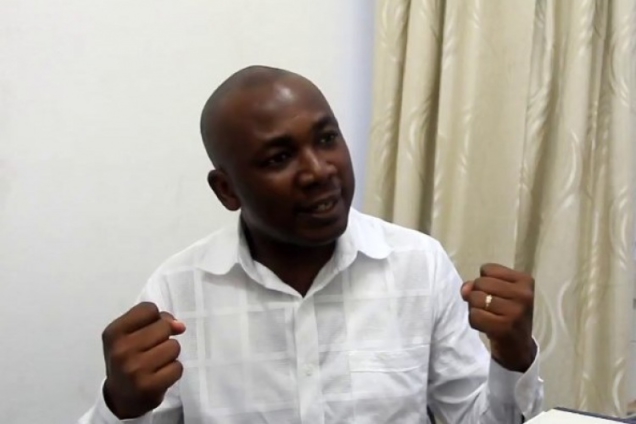
Audio By Carbonatix
An Economist and Finance Lecturer at the University of Ghana Business School (UGBS) says the government’s introduction of a debt exchange programme is the first level of measures to be implemented before Ghana qualifies for an IMF bailout.
According to Prof Godfred Bokpin, there would be more programmes to follow.
“This is not to scare anyone. The debt exchange government announced is just the first level, there would be more to come,” he stated.
According to him, “there would be exchange with non-tradable government debt, there would be some other fiscal adjustment that would have to be made beyond what is in the 2023 Budget.”
Speaking in an interview on Joy FM's Top Story on Monday, he explained that his assertion is due to the fact that the level of adjustment that needs to be made to attain sustainability in the debt levels is enormous.
“Because across almost all the debt sustainability dependency indicators, we are trending in some cases more than 40% above the policy dependency threshold in the baseline estimation.”
"Unfortunately, what makes it sad is the lack of disclosure and transparency on the part of our government and their lack of consultation, coming with clean hands, honesty, humility to say that this is the extent of the problem. I need all of you to come on board. Look, the government has adopted an approach like they more or less want to ambush the market. It doesn't help," he explained.
Prof. Bokpin added that, “assuming government was to have its way and even suspend interest payment across all its instrument –treasury bills, bonds etc and even include external debt servicing obligation as captured in the 2023 Budget, approximately 63 billion cedis, it will not be enough.”
According to him, per the analysis, the primary surplus the country needs to record in the next five years to climb back to a sustainable level is averaging 6.4 million dollars.
“If you look at that current exchange rate, you are looking at something in excess of 75 billion cedis. So that tells you that the level of savings that have to be made on annual basis to bring the debt to a more sustainable level is huge,” he said.
Latest Stories
-
Akwaba Magic marks five years, promises more original Ghanaian content
9 minutes -
Inflation falls to 3.3% in February, lowest since 2021 rebasing
10 minutes -
2026 World Cup: ‘Stingy’ Black Stars should be generous for ‘spiritual backing’ – Prince Tagoe
16 minutes -
Justice, Divine Jailbreaks & The Republic’s Headache
17 minutes -
‘We are ever ready to host the 2026 WAFCON if Morocco is not’ – South Africa Sports Minister
19 minutes -
National Service Authority moves to resolve staff concerns over flagged payment records
27 minutes -
AICL workers urge gov’t to fast-track talks with Hong Kong Investor to revive former ATL
32 minutes -
Ho teaching hospital sees off Dr. John Tampouri, Dr. John Korbuvi into retirement
50 minutes -
Ghana’s inflation drops to 3.3% in February, lowest since 2021 rebasing
53 minutes -
CAF to announce 2026 WAFCON decision in 48 hours
1 hour -
The messaging crisis behind vote selling in Ghana
1 hour -
First US soldiers to die in Iran conflict are identified
1 hour -
11 injured in head-on collision on Cape Coast-Takoradi Highway
1 hour -
‘This is the best I have seen the team play’ – Bjorkegren praises Black Queens win over Russia
1 hour -
ECOWAS Commission slot traded for AU Chairmanship — Nana Asafo-Adjei Ayeh alleges
1 hour

